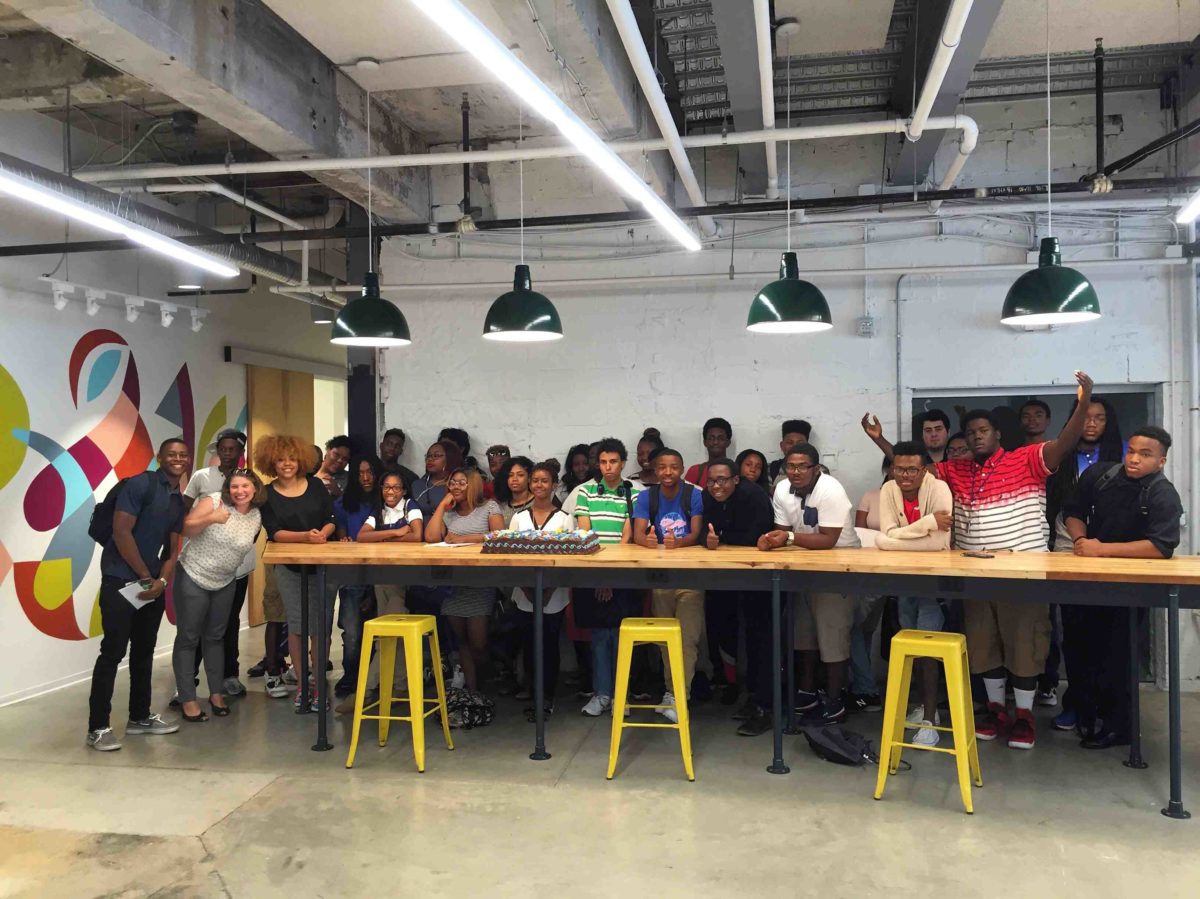Baltimore is home to a thriving edtech startup scene, but it’s also home to tech education organizations working to develop the next generation of tech superstars.
The city has long been known as one that ingeniously confronts the numerous challenges it faces daily. As we move further into the 21st century, this continues to be true. I’m lucky to be right smack in the middle of the impressive growth while serving as the communications director for Code in the Schools (CITS). CITS is a local nonprofit that works to expand access to computer science education to underserved and underrepresented Baltimore youth. We accomplish our mission through a multi-pronged approach, combining in-school instruction, after-school programs, 21st century skills training and professional development workshops for teachers.
Computer science has become one of the trendiest topics in education advocacy over the past few years, and with good reason. But despite the thirst for computer science education for our youth, few schools offer it. Though the digital divide may not seem like an issue of social justice, that is changing every day.
The year after graduating from college, I lived in Bolivia where I attempted to work on a social journalism project with young people. I arrived with a number of assumptions about their digital literacy that proved to be incredibly wrong, and ultimately, had a big impact on the not-so-great project outcome. My students had a basic understanding of how a computer worked, and of course all participated in social media, but beyond that, they were unable to use a computer to access information or create anything of their own. This reality had a big impact on me: I use the internet every day to inform myself of everything, especially in this current geopolitical climate.
The idea that young people are disconnected from knowledge because of a lack of internet connectivity, material resources like devices and opportunities for learning was disheartening. It also forced me to recognize that this was a reality very present in the U.S. I had spent my undergrad years working with vulnerable populations, which often caused me to ignore what might be viewed as “smaller” issues. I had never thought of access to technology as an issue of educational justice.
Upon returning from Bolivia, I started a fellowship with Baltimore Corps where I was fortunate enough to be hired by CITS.

One example of the work we do is our annual Game Jam. Each year, as part of Baltimore Innovation Week, CITS puts on the Game Jam, one of our biggest events. Game Jam is a one-day event where youth (from sixth grade through twelfth grade) work in teams to create an original video game in fewer than 12 hours. This is a challenge for professional video game developers and so to ask young students to produce at such a high level is an exciting and suspenseful endeavor.
The winners of the competition will have the chance to play their game on the giant digital billboard in Station North during Artscape 2017. We invite the public to come to the fourth annual Game Jam awards ceremony and celebration directly following the event at Impact Hub Baltimore.
This year’s Game Jam is on Saturday, Oct. 1, at CITS headquarters (10 E. North Ave.) from 8 a.m. to 6 p.m. The award ceremony starts at 7 p.m. Come out to see the incredible creations of young Baltimoreans and enjoy a beer on us. We hope to see you there.
RSVP







